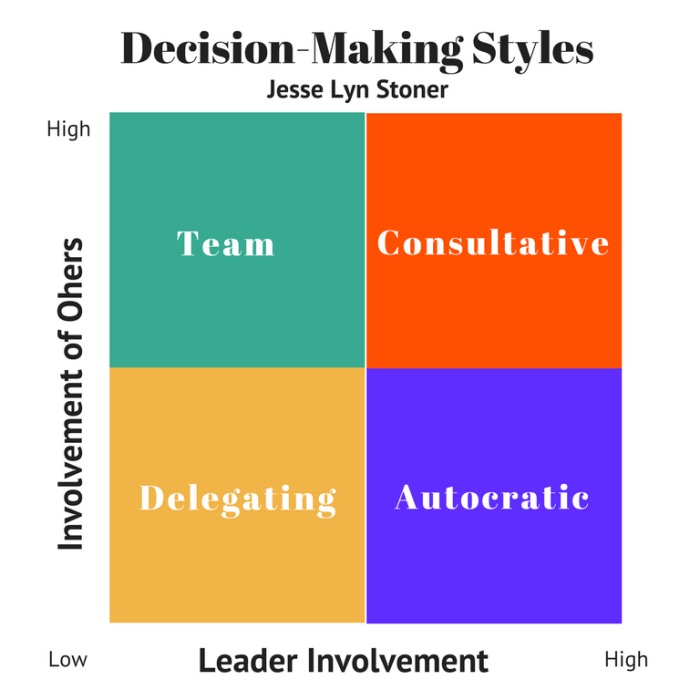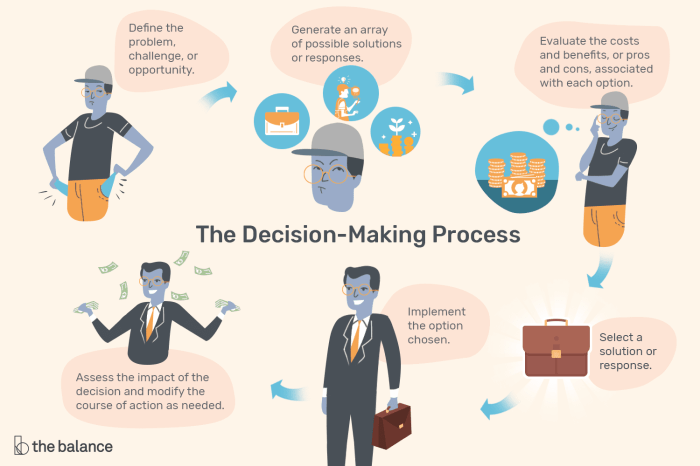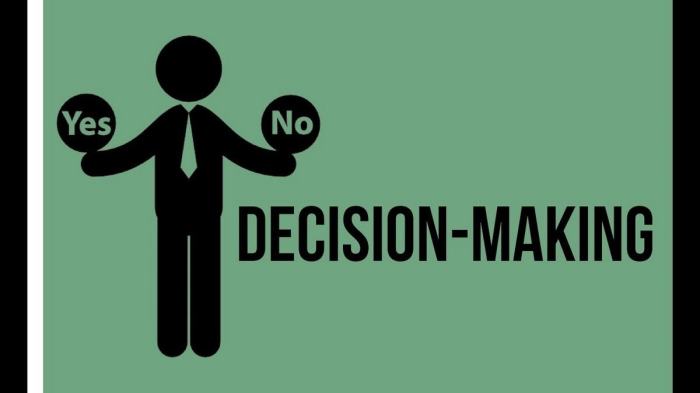Effective managers their dominant decision style to avoid making mistakes – In the realm of management, effective decision-making is paramount. This article delves into the strategies employed by successful managers, analyzing their dominant decision styles and exploring the impact of emotional intelligence on decision-making processes. By understanding the common pitfalls and adopting proven strategies, managers can enhance their decision-making capabilities and minimize the likelihood of costly mistakes.
Effective managers demonstrate a remarkable ability to adapt their decision-making styles to diverse situations. They recognize the strengths and limitations of each style, tailoring their approach to the specific context. This adaptability enables them to make informed choices that align with organizational objectives and stakeholder expectations.
Effective Managers and their Dominant Decision Styles
Effective managers employ various decision-making styles to navigate complex organizational challenges. Understanding these styles, their advantages, and disadvantages is crucial for managers to adapt their approach to different situations.
Autocratic Decision-Making
In autocratic decision-making, the manager makes decisions solely based on their own judgment. This style is efficient and allows for quick decisions, but it can stifle creativity and employee engagement.
Consultative Decision-Making
Consultative decision-making involves seeking input from team members before making a decision. This style fosters collaboration and buy-in, but it can be time-consuming and may lead to delays.
Democratic Decision-Making
In democratic decision-making, the manager involves the entire team in the decision-making process. This style promotes inclusivity and ownership, but it can be difficult to reach a consensus and may slow down decision-making.
Delegative Decision-Making
Delegative decision-making involves assigning decision-making authority to subordinates. This style empowers employees and frees up the manager’s time, but it requires trust and effective delegation skills.
Common Mistakes Made by Managers in their Decision-Making

Ignoring Relevant Information
Managers may fail to gather sufficient information before making decisions, leading to incomplete or inaccurate assessments.
Overreliance on Intuition
While intuition can be valuable, relying solely on it can lead to biased and impulsive decisions that lack logical reasoning.
Lack of Consideration for Alternative Perspectives
Managers may fail to consider diverse viewpoints and perspectives, which can result in narrow-minded decisions that overlook potential risks or opportunities.
Ignoring the Long-Term Impact, Effective managers their dominant decision style to avoid making mistakes
Short-term thinking can lead managers to make decisions that prioritize immediate gains but compromise long-term goals.
Strategies for Avoiding Decision-Making Mistakes

Gathering Comprehensive Information
Effective managers gather data, research, and consult with experts to ensure they have a thorough understanding of the situation.
Considering Different Perspectives
Managers seek input from team members, stakeholders, and external sources to gain a broader perspective and identify potential blind spots.
Seeking Feedback
Soliciting feedback from others allows managers to evaluate the potential impact of their decisions and make necessary adjustments.
Utilizing Decision-Making Tools
Managers employ decision-making tools, such as decision matrices or risk assessments, to structure and analyze complex decisions.
The Role of Emotional Intelligence in Decision-Making

Self-Awareness
Emotionally intelligent managers understand their own emotions and how they influence their decision-making.
Empathy
Managers with empathy can consider the emotional impact of their decisions on others, leading to more inclusive and compassionate choices.
Self-Regulation
Emotionally intelligent managers can manage their emotions, preventing biases or impulsive decisions from clouding their judgment.
Social Skills
Managers with strong social skills can build relationships, gather diverse perspectives, and effectively communicate decisions to others.
Case Studies of Effective Decision-Making: Effective Managers Their Dominant Decision Style To Avoid Making Mistakes

Case Study 1: Amazon’s Decision to Launch AWS
Amazon’s decision to launch Amazon Web Services (AWS) was a pivotal moment in the company’s history. Jeff Bezos employed a consultative approach, seeking input from engineers and customers, and ultimately made a bold decision to invest in cloud computing.
Case Study 2: Tesla’s Decision to Go Electric
Elon Musk’s decision to focus Tesla on electric vehicles was a bold and visionary move. He considered long-term trends, market demand, and environmental concerns to make a decision that has revolutionized the automotive industry.
FAQ Section
What are the most common decision-making styles employed by effective managers?
Effective managers commonly adopt a range of decision-making styles, including autocratic, democratic, consultative, and delegative styles. The choice of style depends on factors such as the urgency of the decision, the level of expertise required, and the need for stakeholder involvement.
How can managers avoid the pitfalls of emotional decision-making?
To avoid the pitfalls of emotional decision-making, managers should engage in self-reflection to identify their emotional triggers. They should also seek feedback from trusted colleagues or mentors to gain an external perspective on their decision-making process.
What are the key strategies for effective decision-making?
Effective decision-making involves gathering comprehensive information, considering diverse perspectives, and seeking feedback from stakeholders. Managers should also evaluate the potential risks and rewards associated with each decision and be willing to adjust their approach as new information emerges.